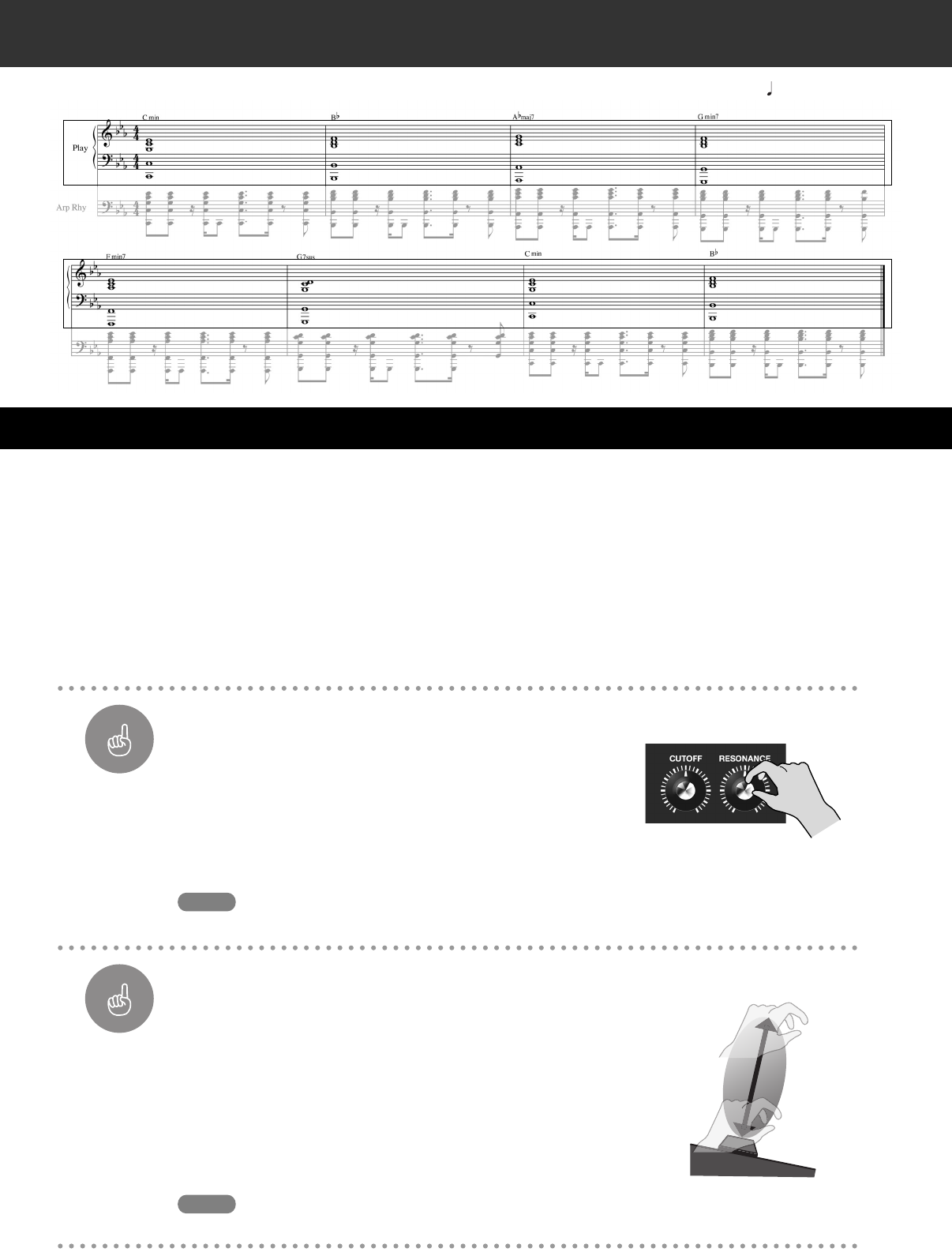
39
Playing Techno Sounds
Techno Arp
Play the sample score.
Turn on the Arpeggio function and play the staff labeled “Play” on the sample score.
Play the keys at an octave higher than the pitches shown on the sample score. This allows you to play
the “Arp Rhy” staff.
Turning off each function
If you press the [ARPEGGIO] button and the button’s light goes out, the Arpeggio is switched off.
If you press the OCTAVE [DOWN] and [UP] buttons together, the value of the Octave Shift is reset to
“0” and the pitch of the keyboard is restored.
Varying the Tone—[CUTOFF]/[RESONANCE] Knobs
Both of these knobs are used for adjusting the elements of the tones
to change them.
Turning the [CUTOFF] knob to the right makes the tone brighter,
while turning it to the left makes it darker.
Turning the [RESONANCE] knob to the right strengthens the tone’s
distinctive character, while turning it to the left reduces it.
For further information about the SOUND MODIFY, see “Using the Knobs to Modify the
Sound (SOUND MODIFY)” (p. 65).
Varying the Tone—D Beam Controller/[SOLO SYNTH] Button
The D Beam controller is at the upper left of the keyboard. You can use this
controller by simply holding your hand over it as shown in the illustration.
You can use the three buttons below the D Beam controller to select the
controller’s function. In this case, use the [SOLO SYNTH] button.
Press the [SOLO SYNTH] button. The button is lit. Move your hand up and
down above the D Beam controller to control the pitch of the tone.
This enables you to play the sounds like those produced by monophonic
synthesizers.
For further information about the D Beam controller, see “Using
the D Beam Controller to Modify the Sound” (p. 63).
Playing
Important
Function
Memo
Important
Function
Memo
=126
JUNO-Di_e.book 39 ページ 2009年6月22日 月曜日 午前9時23分


















